The EAHP EU Monitor is a regular round up of news relevant to hospital pharmacy in Europe.
EAHP Survey on the future crisis preparedness of hospital pharmacies
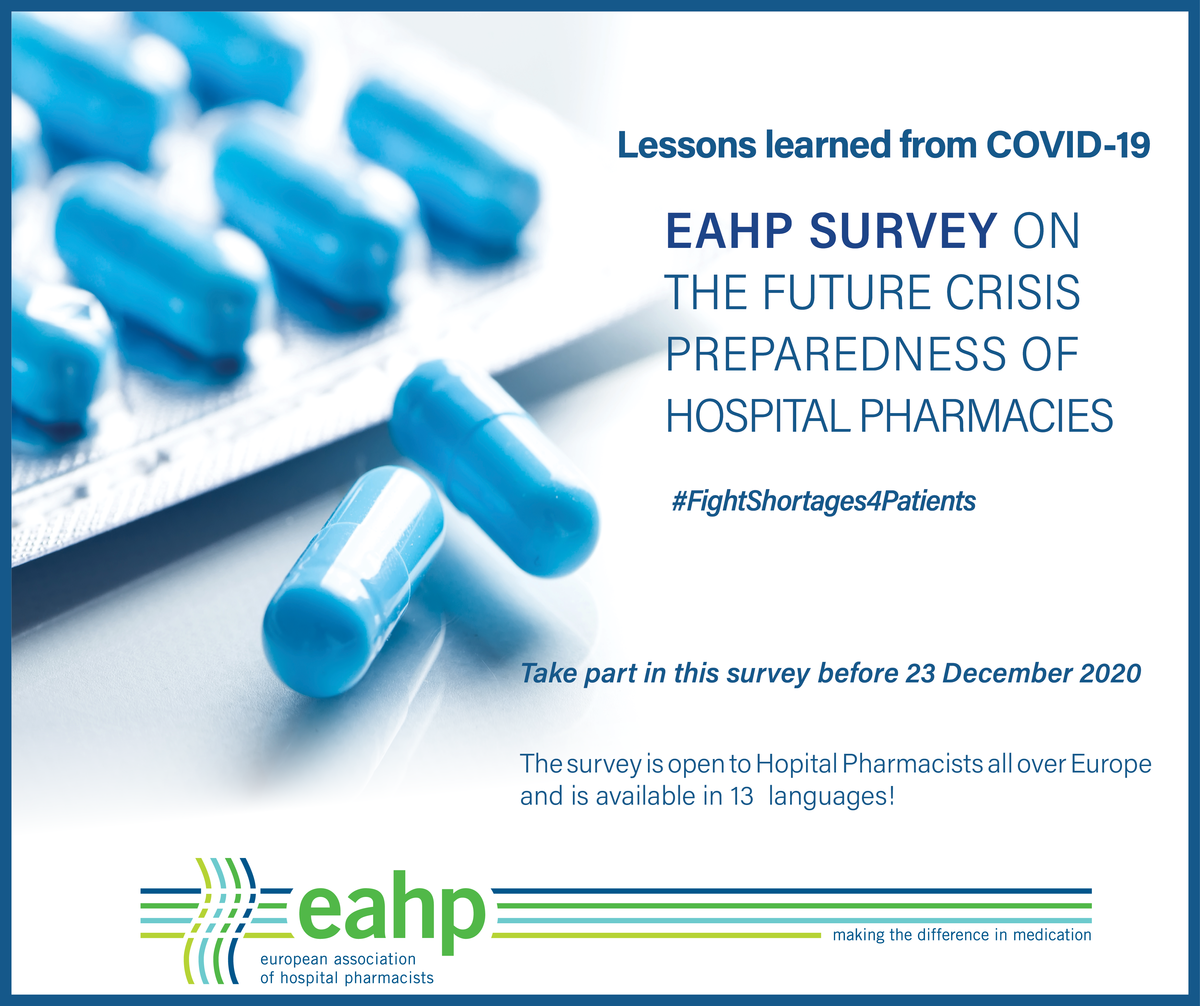
Last week, European Commission President Ursula von der Leyen called in her State of the Union address for the establishment of a stronger European Health Union. To make this idea a reality, she suggested to start by drawing the first lessons from the health crisis. The European Association of Hospital Pharmacists (EAHP) quickly followed this suggestion by launching its Survey on the future crisis preparedness of hospital pharmacies.
Available in 13 different languages, the new EAHP Survey seeks to gather on the one hand details on the medicines for which shortages were experienced during the first months of the pandemic. On the other hand, it takes stock of the experiences made in hospitals and explores suggestions for improving the future crisis preparedness of hospital pharmacies. EAHP encourages hospital pharmacists across Europe to share their lessons learned from COVID-19 by 23 December 2020.
Access the English version HERE
Access the French version HERE
Access the German version HERE
Access the Greek version HERE
Access the Hungarian version HERE
Access the Italian version HERE
Access the Macedonian version HERE
Access the Montenegrin version HERE
Access the Portuguese version HERE
Access the Romanian version HERE
Access the Serbian version HERE
Access the Slovak version HERE
Access the Spanish version HERE
European Parliament adopts report on medicines shortages

During the September plenary session, more than 90% of the Members of the European Parliament supported the “Resolution on the shortage of medicines – how to address an emerging problem”, calling for a more self-sufficient Union when it comes to medicines and medical equipment and the provision of affordable treatments for all European patients.
Together with the Association of European Cancer Leagues (ECL), the European Public Health Alliance (EPHA), France Assos Santé and Prescrire, EAHP has put together a common note to remind European policy makers that shortages of medicines entail considerable risks for the health and safety of patients, the interests of whom must always come first in any policy aimed at fighting this global threat. Given the richness of the European Parliament Resolution, EAHP and the other four organisations picked up on a number of important points that should be prioritised, including but not limited to carrying out a European study on the impact of shortages on patient care; clarifying the supply and notification obligations for market authorisation holders and wholesalers under Directive 2001/83/EC and imposing dissuasive and proportionate sanctions in the event of non-compliance with these legal obligations; setting up a centralised digital platform for declaring available stocks in the EU and for reporting shortages, including real-time communication to healthcare professionals and patients as well as encouraging the implementation of procurement procedures that award a contract to multiple winners.
Aida Batista, EAHP Vice President and Board lead responsible for the topic of medicines shortages, welcomed the adoption of the Resolution on 17 September by the European Parliament and highlighted the importance of this initiative for patients and healthcare professionals. She stressed that “Unlike mentioned in the title of the report, the problem of shortages is not an emerging problem. It has grown for over 10 years and significantly impacts patient care. For EAHP it is thus of uttermost importance that the calls to action raised in the ‘Resolution on the shortage of medicines – how to address an emerging problem’ are implemented in a timely manner. EAHP and its members are committed to continue their work linked to medicines shortages and support European action on this issue”.
Read the Resolution HERE
Read the common note of EAHP, ECL, EPHA, France Assos Santé and Prescrire HERE
Webinar: Practical examples of Clinical and Hospital Pharmacy Services for COVID-19 patients
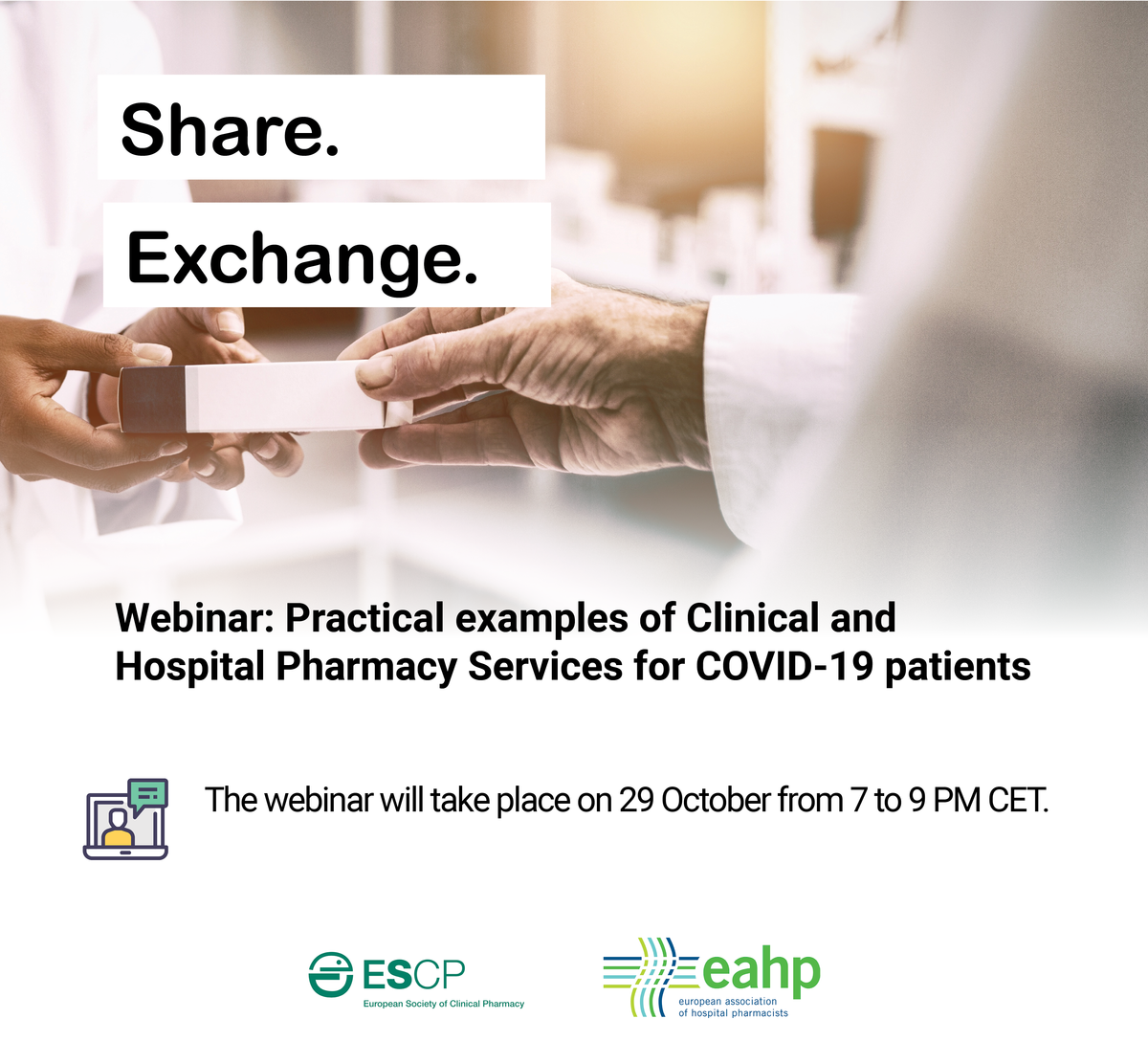
Earlier this year, EAHP and the European Society of Clinical Pharmacy (ESCP) collected inspiring examples of clinical and hospital pharmacy services for COVID-19 patients (read more about this initiative in the EU Monitor of 26 May). On 29 October, selected examples will be presented in a webinar focusing on COVID-19 pharmaceutical care delivered in hospitals. The webinar will take place from 7 to 9 PM CET and also provide you with a COVID-19 pharmacotherapy update.
Join us on 29th October by registering via the following LINK!
The webinar focusing on practical examples of pharmacy services will be part of a webinar series hosted by ESCP. Two other online events covering biosimilars and DOACs will be organised on 7 October and 19 November.
Learn more about the ESCP webinar series HERE
Questionnaire about the working situation for healthcare professionals and treatment effects of the pandemic in different countries

EAHP has teamed up with its colleagues from the European Society of Oncology Pharmacy (ESOP) to gain more insights on the situation of cancer patients during the COVID-19 pandemic. Building on the success of its weekly surveys, which were completed by pharmacists from 63 countries, ESOP has put together a structured approach to collect further perceptions and facts about the pandemic on a monthly basis.
In April, ESOP had started to put together weekly member situation reports focusing on the number of COVID-19 patients, shortages experienced and the impact on cancer treatments. Over the summer these weekly updates were transformed into a monthly survey exercise that will be carried out between September 2020 and February 2021. The questionnaire is available in German, English, French, Spanish, Russian, Italian and Bosnian. Hospital pharmacists are encouraged to contribute.
Access the survey via the following LINK
Celebrate World Pharmacist Day with EFCP!
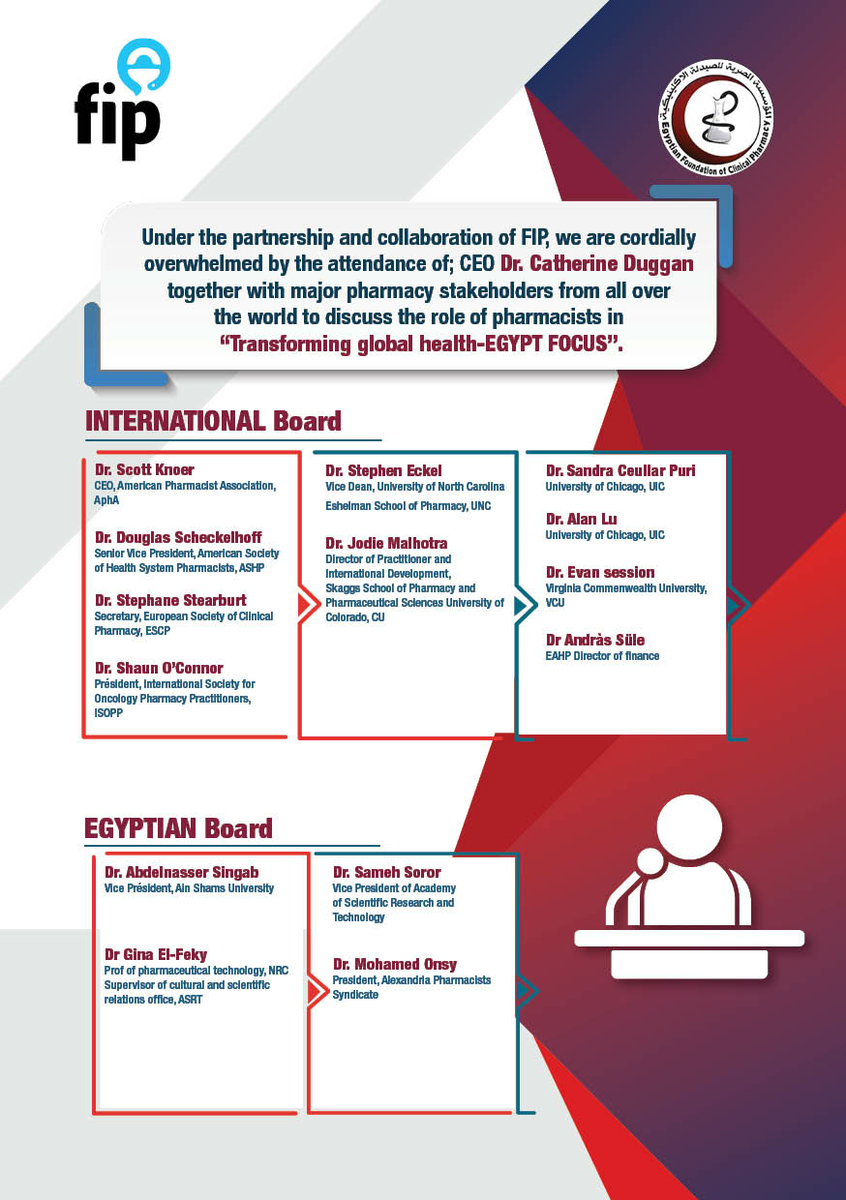
This Friday pharmacists across the world will be coming together in celebration of the World Pharmacist Day. Linked to the theme “Transforming global health” the Egyptian Foundation of Clinical Pharmacy (EFCP) will be hosting a webinar on 29 September at 2 PM (Cairo time) with the support of the International Pharmaceutical Federation (FIP), the American Pharmacists Association, the American Society of Health-System Pharmacists, the European Society of Clinical Pharmacy (ESCP) and EAHP.
To mark the 10th anniversary of the World Pharmacist Day international and Egyptian speakers, including EAHP’s Director of Finance András Süle, will be reflecting on the development of pharmacy practice in Egypt. European hospital pharmacists that are interested to celebrate the World Pharmacists Day with colleagues from across the world are welcome to join the event by registering via the following LINK.
Learn more about EFCP HERE
Learn more about the World Pharmacist Day HERE
Online debate: Patient safety and the implementation of FMD in the hospital environment
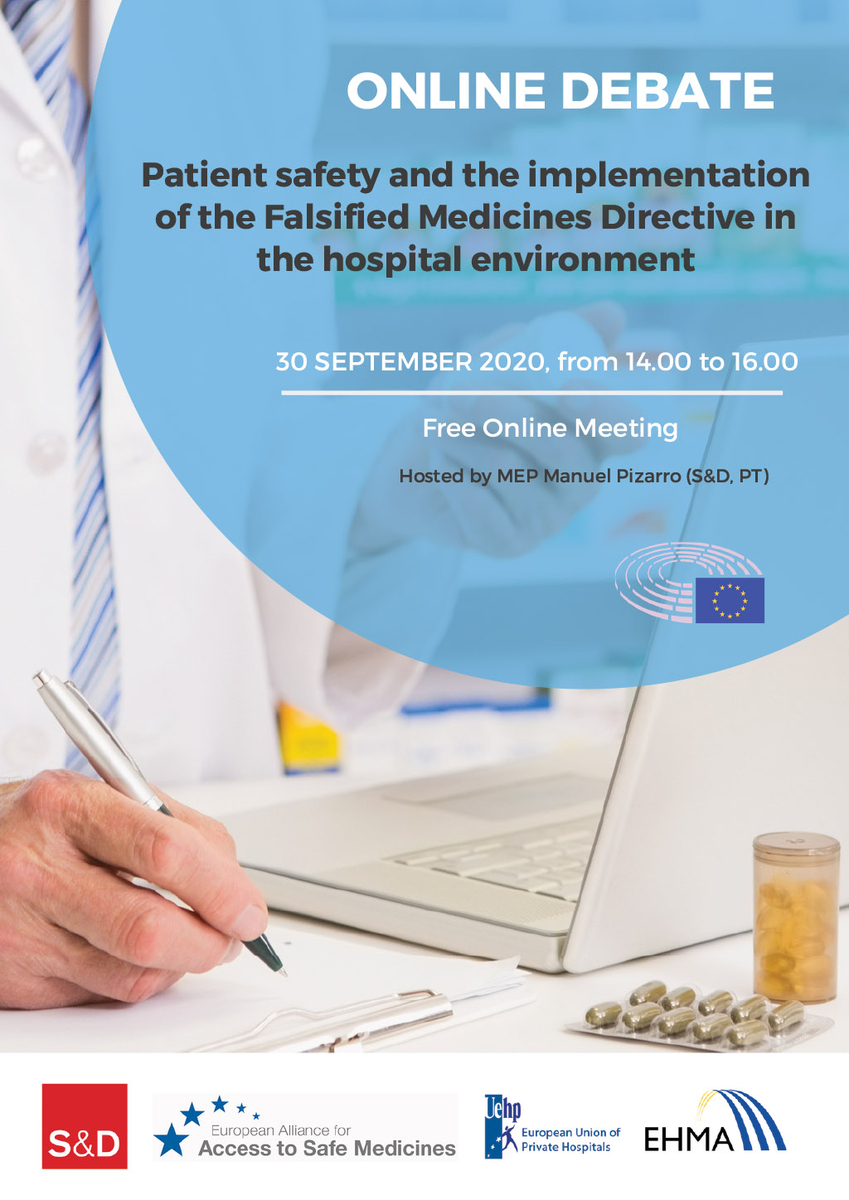 On 30 September at 2 PM CET, the European Alliance for Access to Safe Medicines (EAASM), in collaboration with the European Union of Private Hospitals (UEHP) and the European Health Management Association (EHMA), will organise a virtual event on “Patient safety and the implementation of the Falsified Medicines Directive in the hospital environment”. András Süle, EAHP’s Director of Finance, will share the Association’s views on the implementation of the Falsified Medicine Directive (FMD).
On 30 September at 2 PM CET, the European Alliance for Access to Safe Medicines (EAASM), in collaboration with the European Union of Private Hospitals (UEHP) and the European Health Management Association (EHMA), will organise a virtual event on “Patient safety and the implementation of the Falsified Medicines Directive in the hospital environment”. András Süle, EAHP’s Director of Finance, will share the Association’s views on the implementation of the Falsified Medicine Directive (FMD).
Hosted by Member of the European Parliament Manuel Pizarro, the 2-hour online event will bring together representatives from the European Medicines Verification Organisation (EMVO), Be4ward, the Finnish Medicines Verification Organisation, the East and North Hertfordshire NHS Trust in the UK and the pharmacy of the CHU-Hôpitaux de Rouen-Pôle in France. The event is free of charge and open to anyone with an interest in FMD. Hospital pharmacists can register via the following LINK.
Learn more about the event HERE
Updates from the European Medicines Agency
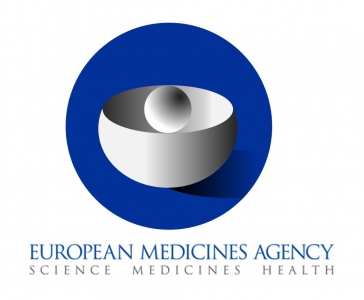 The European Medicines Agency (EMA) published new communications on the revocation of the marketing authorisation of ulipristal acetate for uterine fibroids and the use of dexamethasone in COVID-19 patients on oxygen or mechanical ventilation. Also, EMA has shared recommendation for healthcare professionals on Peyona to avoid medical errors which can be accessed HERE.
The European Medicines Agency (EMA) published new communications on the revocation of the marketing authorisation of ulipristal acetate for uterine fibroids and the use of dexamethasone in COVID-19 patients on oxygen or mechanical ventilation. Also, EMA has shared recommendation for healthcare professionals on Peyona to avoid medical errors which can be accessed HERE.
PRAC recommends revoking marketing authorisation of ulipristal acetate for uterine fibroids
A review by EMA’s safety committee (PRAC) has confirmed that 5-mg ulipristal acetate (Esmya and generic medicines) used for the treatment of symptoms of uterine fibroids can cause liver injury, including the need for liver transplantation. The PRAC has therefore recommended the revocation of the marketing authorisations of these medicines.
The PRAC considered all the available evidence in its review, including reported cases of serious liver injury. Patient and healthcare professional representatives, including experts in gynaecology, were also consulted. Since it was not possible to identify which patients were most at risk or measures that could reduce the risk, the PRAC concluded that the risks of these medicines outweighed their benefits and that they should not be marketed in the EU.
The use of 5-mg ulipristal acetate medicines for uterine fibroids had already been suspended as a precautionary measure while awaiting the outcome of this review. Ulipristal acetate is also authorised as a single-dose medicine for emergency contraception. This recommendation does not affect the single-dose ulipristal acetate emergency contraceptive (ellaOne and other trade names) and there is no concern about liver injury with these medicines. The PRAC recommendation will now be forwarded to EMA’s human medicines committee (CHMP), which will adopt the Agency’s opinion.
More information is available HERE
EMA endorses the use of dexamethasone in COVID-19 patients on oxygen or mechanical ventilation
EMA’s human medicines committee (CHMP) has completed its review of results from the RECOVERY study arm that involved the use of the corticosteroid medicine dexamethasone in the treatment of patients with COVID-19 admitted to hospital, and has concluded that dexamethasone can be considered a treatment option for patients who require oxygen therapy (from supplemental oxygen to mechanical ventilation).
Based on the review of available data, EMA is endorsing the use of dexamethasone in adults and adolescents (from 12 years of age and weighing at least 40 kg) who require supplemental oxygen therapy. Dexamethasone can be taken by mouth or given as an injection or infusion (drip) into a vein. In all cases, the recommended dose in adults and adolescents is 6 milligrams once a day for up to 10 days.
Published data from the RECOVERY study show that, in patients on invasive mechanical ventilation, 29% of those treated with dexamethasone died within 28 days of starting dexamethasone treatment compared with 41% of patients receiving usual care, with a relative reduction of about 35%. In patients receiving oxygen without mechanical ventilation, the figures were 23% with dexamethasone and 26% with usual care, with a relative reduction of about 20%. No reduction in the risk of death occurred in patients who were not receiving oxygen therapy or mechanical ventilation. These results were supported by additional published data, including a meta-analysis conducted by the World Health Organization (WHO) which looked at data from seven clinical studies investigating the use of corticosteroids for the treatment of patients with COVID-19.
Companies that market dexamethasone medicines can request this new use to be added to their product’s license by submitting an application to national medicines agencies or to EMA. The proposed changes to the dexamethasone product information for patients and healthcare professionals are available HERE.
More information is available HERE
WHO’s European Programme of Work adopted
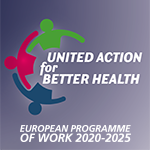 In mid-September, the World Health Organisation’s European Region shared its 5-year vision with ministers and public health officials from over 50 European countries. All endorsed the ambitious plan for “United Action for Better Health in Europe” which is aligned with the Sustainable Development Goals and the WHO’s general programme of work for 2019 to 2023.
In mid-September, the World Health Organisation’s European Region shared its 5-year vision with ministers and public health officials from over 50 European countries. All endorsed the ambitious plan for “United Action for Better Health in Europe” which is aligned with the Sustainable Development Goals and the WHO’s general programme of work for 2019 to 2023.
The European Programme of Work (EPW) was developed in close collaboration with all countries of the region and takes into account the impact that the COVID-19 crisis had and still has on the health systems across Europe. Its core priorities will focus on
- guaranteeing the right to universal access to quality care without fear of financial hardship;
- protecting against health emergencies; and
- building healthy communities, where public health actions and appropriate public policies secure a better life in an economy of well-being.
The EPW is also complemented by four flagship initiatives, namely the Mental Health Coalition, Empowerment through Digital Health, the European Immunization Agenda 2030 and Healthier behaviours: incorporating behavioural and cultural insights. Also, a dedicated website has been set up.
Access the website for the EPW HERE
Read the EPW HERE
FIP Council approves new Statements of Policy
 Members of the International Pharmaceutical Federation (FIP) adopted three new Statements of Policy on patient safety, medicines shortages and pharmacy remuneration to enhance the role of the profession.
Members of the International Pharmaceutical Federation (FIP) adopted three new Statements of Policy on patient safety, medicines shortages and pharmacy remuneration to enhance the role of the profession.
The Statement of Policy on Medicines Shortages touches on the growing concern over the future of worldwide medicines supplies. Recommendations include the provision of greater authority to pharmacists when it comes to solving medicines shortages, publicly accessible information and a move towards active procurement processes that assure the continuity of supply of quality medicines. Also, the Statement on the sustainability of pharmacist-delivered professional services shares a number of recommendations aimed at strengthening the role of the profession.
Medication safety is being emphasised in the document on patient safety. Improvements that are called for by the FIP Statement of Policy link to the access to patients clinical information, non-punitive national systems for the reporting, monitoring, analysing and disseminating safety events, safety indicators and benchmarks and national standards and guidelines.
Access the FIP Statement of Policy on Medicines Shortages HERE
Access the FIP Statement of Policy on the role of pharmacists in promoting patient safety HERE
Access the FIP Statement of Policy Sustainability of pharmacist-delivered professional services through viable remuneration models HERE
EJHP: Role of the hospital pharmacist in an Italian antimicrobial stewardship programme
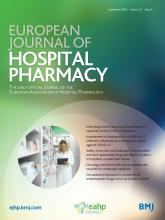
The original article published in the online first edition of the European Journal of Hospital Pharmacy (EJHP) shares insights on the creation of a reference model and a specific training manual on antibiotic stewardship to introduce the role of the department pharmacist with specific infection disease skills in the Italian health system hospitals. The study which was conducted for 24 months in 6 Italian hospitals showed that the interventions of the antibiotic stewardship pharmacist led to an improvement in quality of care, resource efficiency and healthcare professional awareness
Read the article HERE
 [COVID-19 Updates]
[COVID-19 Updates]
EAHP’s COVID-19 Resource Centre
To assist its member associations and individual hospital pharmacists in this critical time with the provision of the best possible care for patients, EAHP has decided to gather and make available information on COVID-19 relevant for the hospital pharmacy profession.
Access the Resource Centre HERE
Journal of Interprofessional Care – Development of an interprofessional rotation for pharmacy and medical students to perform telehealth outreach to vulnerable patients in the COVID-19 pandemic
This report describes an interprofessional rotation for pharmacy and medical students focused on telehealth outreach to patients at high risk for delays in care due to the COVID-19 pandemic.
Learn more HERE
National Health Service (NHS) Specialist Pharmacy Service – Dexamethasone and COVID-19
The Specialist Pharmacy Service of the UK’s NHS has published a guidance on the use and administration of dexamethasone.
Learn more HERE
Implement the Statements with the help of EAHP’s resource library
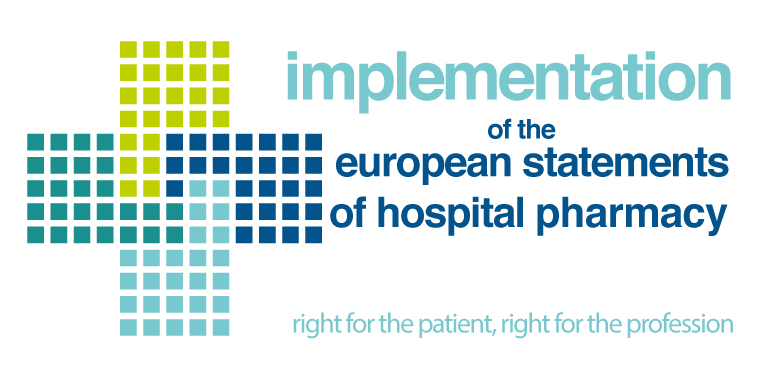
The European Statements of Hospital Pharmacy were adopted six years ago. They include commonly agreed objectives that every European health system should aim for in the delivery of hospital pharmacy services to improve patient outcomes. Since 2016, EAHP is working with its members on the implementation of the Statements. Different resources, such as cases studies and best practices, were collected over the years to help hospital pharmacists with the integration of the Statements in their daily practice. In case you need some inspiration for improving a section of the Statements in your hospital have a look at the Statement Resources.
___________________________________________________________________________________________________________________





























 On 30 September at 2 PM CET, the European Alliance for Access to Safe Medicines (EAASM), in collaboration with the European Union of Private Hospitals (UEHP) and the European Health Management Association (EHMA), will organise a virtual event on “Patient safety and the implementation of the Falsified Medicines Directive in the hospital environment”. András Süle, EAHP’s Director of Finance, will share the Association’s views on the implementation of the Falsified Medicine Directive (FMD).
On 30 September at 2 PM CET, the European Alliance for Access to Safe Medicines (EAASM), in collaboration with the European Union of Private Hospitals (UEHP) and the European Health Management Association (EHMA), will organise a virtual event on “Patient safety and the implementation of the Falsified Medicines Directive in the hospital environment”. András Süle, EAHP’s Director of Finance, will share the Association’s views on the implementation of the Falsified Medicine Directive (FMD).  The European Medicines Agency (EMA) published new communications on the revocation of the marketing authorisation of ulipristal acetate for uterine fibroids and the use of dexamethasone in COVID-19 patients on oxygen or mechanical ventilation. Also, EMA has shared recommendation for healthcare professionals on Peyona to avoid medical errors which can be accessed
The European Medicines Agency (EMA) published new communications on the revocation of the marketing authorisation of ulipristal acetate for uterine fibroids and the use of dexamethasone in COVID-19 patients on oxygen or mechanical ventilation. Also, EMA has shared recommendation for healthcare professionals on Peyona to avoid medical errors which can be accessed  In mid-September, the World Health Organisation’s European Region shared its 5-year vision with ministers and public health officials from over 50 European countries. All endorsed the ambitious plan for “United Action for Better Health in Europe” which is aligned with the Sustainable Development Goals and the WHO’s general programme of work for 2019 to 2023.
In mid-September, the World Health Organisation’s European Region shared its 5-year vision with ministers and public health officials from over 50 European countries. All endorsed the ambitious plan for “United Action for Better Health in Europe” which is aligned with the Sustainable Development Goals and the WHO’s general programme of work for 2019 to 2023.
 [COVID-19 Updates]
[COVID-19 Updates]

